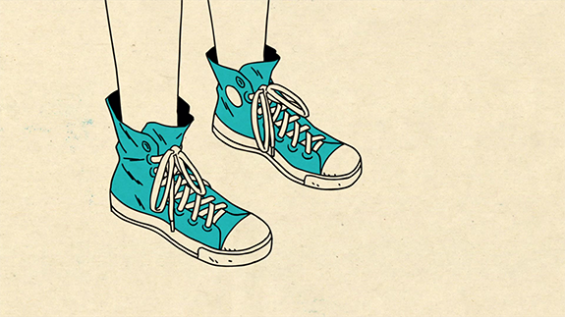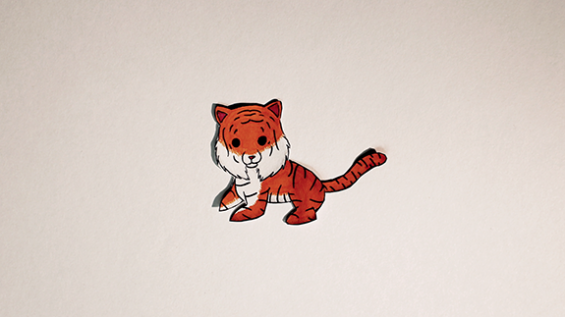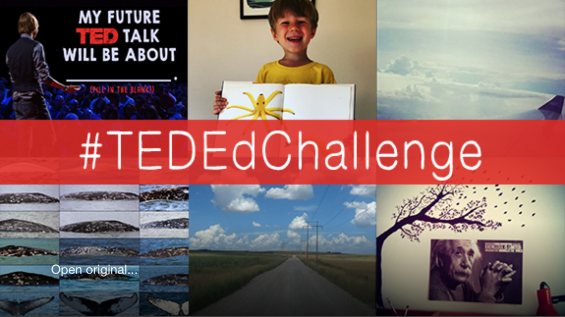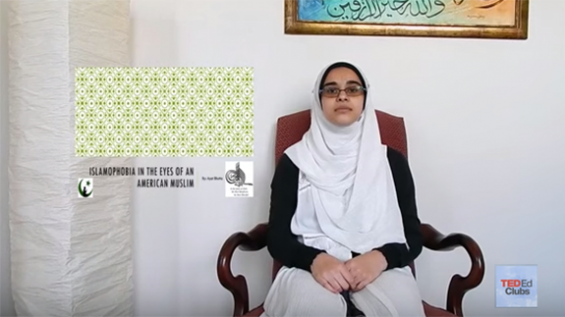
Islamophobia through the eyes of a middle school student
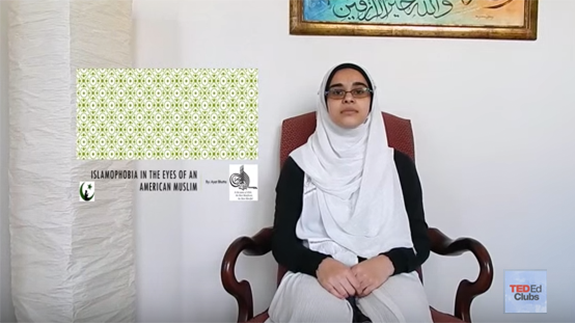
Hilliard Weaver Middle School student Ayat Bhutta notices prejudice against Muslims frequently, both in her own life and on the news. Significant events like the vandalism of mosques around America and the shootings in Chapel Hill made her want to speak out. To learn more about Bhutta’s perspective, take a look at her final TED-Ed Club talk. We asked her some questions about misconceptions she sees in the media and how to effectively combat ignorance.
Have you or your friends or family members had personal experiences with people making negative assumptions about you because of your faith?
I personally have to deal with people making assumptions about me all the time whether at school or when I’m volunteering at the library or even when I’m walking down the street because of the fact that I wear a hijab (head scarf), which links me with Islam. This makes people think I’m oppressed or I have some kind of a weapon under my scarf. Misconceptions about Islam include: Muslims are terrorists, all Arabs are Muslim and Muslim women are oppressed.
You said “We have to band together and…show what Muslims actually look like.” What are some of the Muslim stories you would like to see in the media?
I’d like to see stories in the news about Muslim youth and how they’re impacting the environment around them. Additionally, I’d like to see stories about the positive impact of all Muslims on society, rather than the horrific stories about us in the news. For example—how Muslims are volunteering their time and money for the betterment of society; Muslims in soup kitchens; Muslims in disaster recovery efforts after tornados and floods; or how Muslim students are among the brightest in our nation and the many positive accomplishments they make in our society.
Do you think that social media and the hashtag “#MuslimLivesMatter” are effective tools to fight prejudice?
The hashtag #MuslimLivesMatter is an effective tool in fighting prejudice because it brings the Muslim community closer together. This is resulting in a community response and greater societal awareness of these issues, whether sending letters or posting pictures or even speaking out like I did. Social media is also a great way to fight prejudice because what gets posted on social media creates awareness and gets attention, so if we use social media to our advantage we could create pages and hashtags to get mainstream news attention, and then do something valuable with that attention.
Do you think that better education will eradicate Islamophobia, or is it more than just a problem of ignorance?
Islam comes from the Arabic root word Aslama, which means “to surrender,” and the Arabic word Salam, which comes from the same root word and means peace. Therefore Islam is a religion of surrendering peace; however the literal translation of Islam is submission; submission of our base desires to the will of God. I said that “Islam means peace….” in my video because Islam is a religion that advises, promotes and emphases peace as a goal to the eventual submitting of our wills to God. I believe that better education will help eradicate Islamophobia, but it is also a problem of more than just ignorance. In some cases it is intermingled with politics, biases and issues being taken out of context.
However, I am optimistic that the world will be more tolerant in the future. Historically, it seems that we as a human race undergo periods of intolerance, such as the Spanish Inquisition and witch hunts, the barbaric treatment of Jews in Europe, and now the intolerance and fear-mongering towards Islam. I would like to think that our nation would too in time be more tolerant and accepting of each other. As of now, I think that we need more people speaking up for Islam and educating others before anything changes.
More than 10,000 students are now sharing and presenting their ideas in TED-Ed Clubs around the world. Interested in starting a TED-Ed Club at your school? Find out more.
